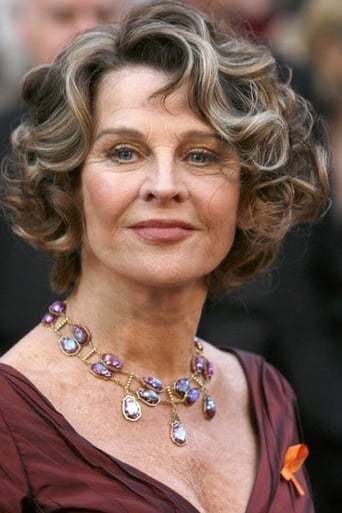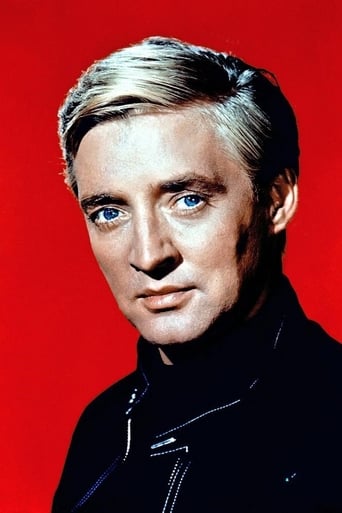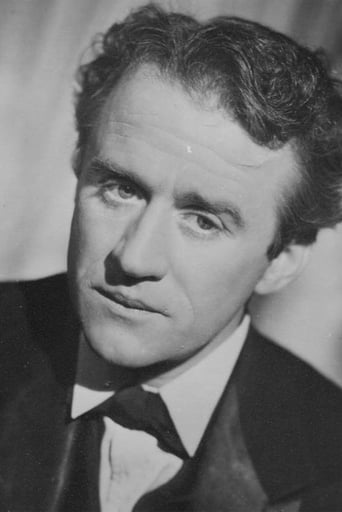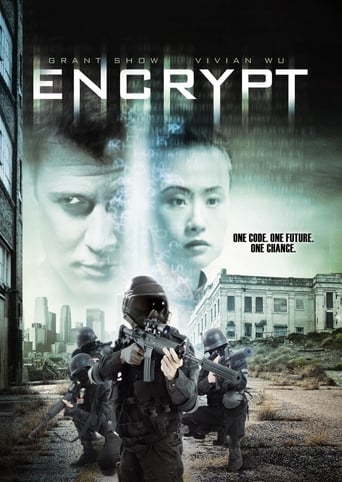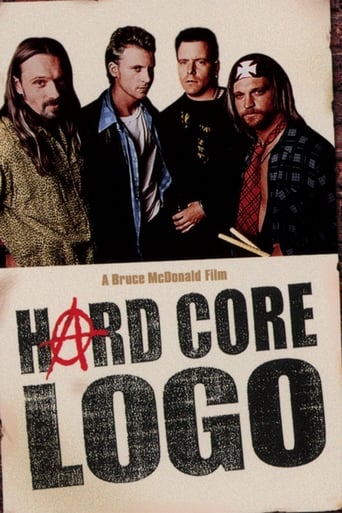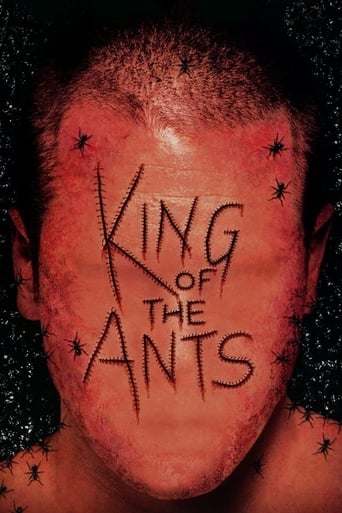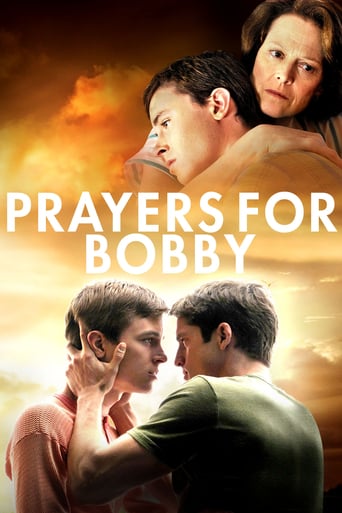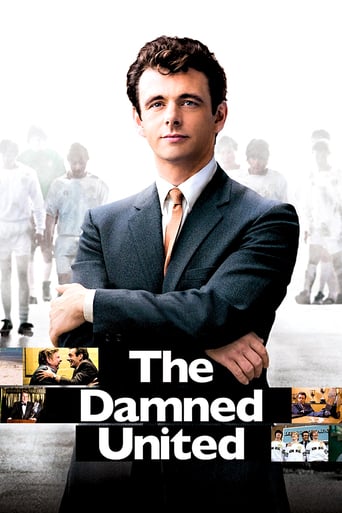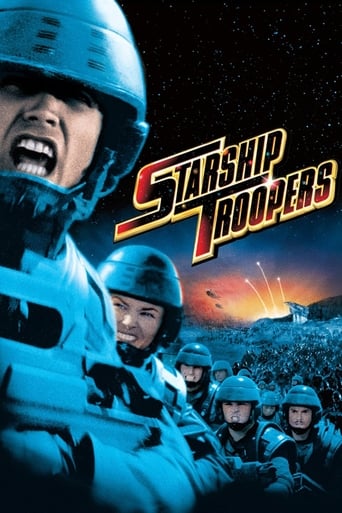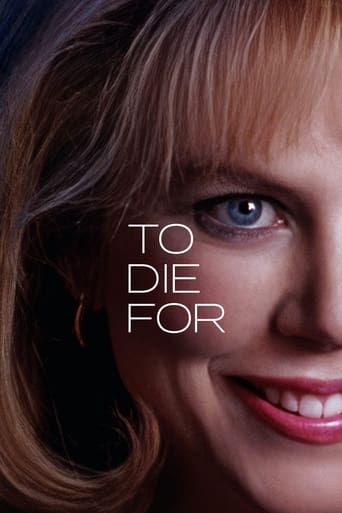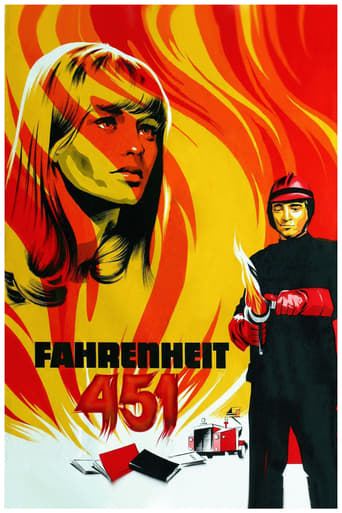
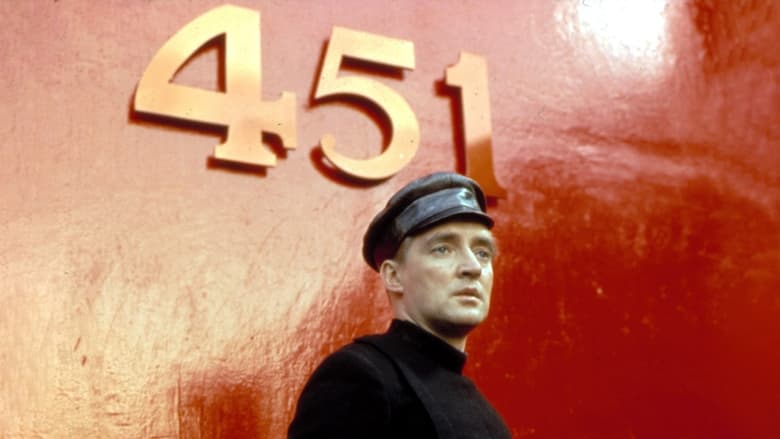
Fahrenheit 451 (1966)
In the future, the government maintains control of public opinion by outlawing literature and maintaining a group of enforcers, known as “firemen,” to perform the necessary book burnings. Fireman Montag begins to question the morality of his vocation…
Watch Trailer
Cast
Similar titles
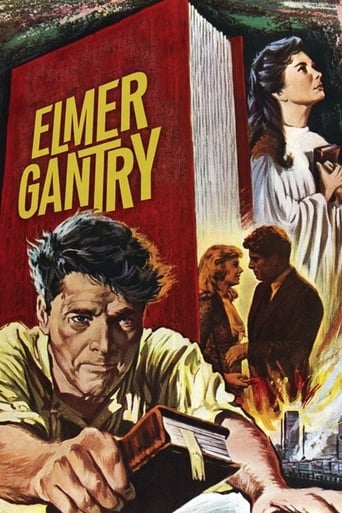

Reviews
Am i the only one who thinks........Average?
A movie that not only functions as a solid scarefest but a razor-sharp satire.
Like the great film, it's made with a great deal of visible affection both in front of and behind the camera.
The film's masterful storytelling did its job. The message was clear. No need to overdo.
This is one of my favorite sci-fi films and my second favorite adaptation from one of my favorite authors for one of my favorite sci-fi books "Fahrenheit 451". Most live action adaptations of Bradberry's works have always been hit or miss, but to me this is one of the hits. Yeah, it's true it's not perfect (though same can be said about a lot of other live action adaptations from famous authors) but for what it was about to accomplish I felt it did well.There is a lot about the film I really like, production value is on par, I even like the music score which is solid though to me the best music was at the end which I thought was beautiful. The suspense in this film is pretty good though like the book this isn't so much a suspense thriller it's more of a drama. Acting was really good from Oskar Werner as Guy Montag I really bought him as a man that has been nothing but a drone for a corrupt power let alone having no real identity hence his name. But then after spending time with Clarise and reading a book or two it awakens things inside him that have been long dormant, we see he is slowly but surely becoming human because he's using his brain and heart. You really find yourself routing for this guy in not so much just to join in the cause to save humanity but to save his own soul.Julie Christie is very good as Clarise and Linda, it's a duel role but I bought into it I actually did believe the actress was two different people. This choice really adds into the film in fact makes it even more interesting which I'll explain latter.The plotline I personally think is terrifyingly plausible it's the kind of place I honestly wouldn't want to live in; when you think about our technological sub culture how rapid it's evolving and how our current reading sub culture is suffering a slight decline. A corrupt government finding the chance to take advantage of the public by outlawing the very thing that gives us knowledge and even joy in life books. That's a really scary thought, one scene that displays this is a harrowing scene, where a woman that has hidden books throughout her own house, sets herself on fire with the books. This didn't just show how there was something sacred about the books that she's die for then live in ignorance, but it was also to show how much of a living hell the society created truly is as it's a world with not just no place for books but intellects as well.It's true the future looks a little more like the 60's and 70's with some futuristic equipment added, this film was made around the 60's after all. But when you think about it more it does make sense, there was some sort of war sometime in the past which means certain resources would be scarce and due to the intellectual bankruptcy, it means very little invention and technological advancement, ok a few but like I said few and most of that tech is under government control.In a way this film along with the book was sort or prolific on Reality TV and podcasting as we see there is this interactive program they have going where people at their own homes they commutate with each other live, with whatever script given to them. Though the difference is at least with reality TV and podcasting, people actually had something to say and they were about something. These programs we see in this society are bloody boring because they're not about anything, no one is really talking about anything or even engaging in real conversation. It makes sense the program would be uninteresting because the people that created it have no imagination, they have no resources of inspiration to fuel its fire.What disturbs me about this society is how intellectually bankrupt and emotionally unbalanced it has become, we don't just see that books have been taken away, but all other resources of intellect as well. Despite all the technology they have we don't see anyone playing any video games or any board/party games of any kind. Or even watch reruns of any old TV shows like "Star Trek" or "Game of Thrones". This just makes the society all the scarier the inability to enjoy those things.The reason for the whole burning is to create peace and equality and based on the old dictum "ignorance is bliss". Now peace and equality are a genuine goal for every society but the problem is their methodology is perverse and corrupt because as it means subtracting basic important human freedoms, which makes the peace and equality achieved false. Also, bliss has a double meaning which is death, which you feel is something that will happen to this society somewhere along the line. We do see that most of the people in this dystopia are happy, but the happiness isn't genuine it's the kind where people are docile and dopped up which we see most are as there are certain drugs available, which in a way is a bit prolific on our own over the counter drug culture. This happiness isn't genuine because there is no love, it sorts of reminds me of what the Seventh Doctor from an episode of "Doctor Who" once said, "Happiness is nothing without sadness, two sides one coin." And that's the main problem with the populace they have no spiritual balance, no yang for their yin which means no harmony.There is a very interesting contrasting dynamic between both Montag's wife and Clarise and Montag in the middle. It's sort of a Cronenberg like dynamic as it's sort of a contrast and clash between two different duel identities. As well as a clash on the positive ideology of what women can be versus certain stereotypical and faulty ideologies about what women should be. Montag's wife Linda is a product of her society and time, she's like a fancy car but with nothing under the hood to really bring it up to speed. One thing about her that is disturbing isn't just that she's a druggie but how forgetful she's became, in a scene she mentioned how she's forgotten how many pills she's taken, which made me worried because at that moment she could've died. This just shows how truly dangerous the society is and justifies the double meaning of bliss, doing nothing to strengthen your mind leads to dire consequences.Clarise is an alternate version of Montag's wife she's obviously what she could have been. As we see her a person with a mind and a heart. One thinks I like about her is that she's curious about a lot of things in life, like what fire man use to do which is something I can emphasize with because even I'm curious about things all the time. In that society they would regard her as an outcast, crazy but she's not she's being human which is part of what humans in fact intellectually do which is to discover and seek truth out.I even like the interaction scenes with both of them, here it's a real health relationship because both are actually interacting, talking about things and sharing them. Unlike with his wife where they talk almost about nothing, in fact Montag can't even remember why they even fell in love and got married which I'll admit is kind of sad because it just shows how absent the concept of love and emotion is. This story is about the importance of literacy, and how important a role books and any other resources of knowledge really are for our lives. But also, the importance of being a person and never settling for less in life. Books may be destroyed but the human spirit never will along with the ideas with it.Rating: 4 stars
Gathering up works by auteur François Truffaut from the 60's,I started trying to decide what the final title in the 4 film viewing would be. Finding out that (the superb) The Wild Child was not a 1969 film (as the DVD case claimed) I began struggling to come up with an alt choice. Recently picking it up on DVD for a friend,I was surprised to see on his IMDb page that this was Truffaut's lone Hollywood movie,which led to me turning the page.View on the film:Stating that he would have quit the movie if he had not been making it, (and spending all the time off-set in his hotel room,due to only being able to speak broken English!)co-writer/(with Jean-Louis Richard/David Rudkin and Helen Scott) director François Truffaut impressively overcomes the language barrier to bring his unique stylisation to Hollywood, bound by Truffaut & cinematographer Nicolas Roeg following Montag in extended French New Wave "walk & talk" tracking shots. Using colour for the first time, Truffaut sets the screen alight with kitsch burning reds, (backed by the flames of Bernard Herrmann's excellent score)which gives the grip of fascism an unsettling blending in with the "perfect" looking town,filled with flat screen TVs and interactive programs to keep the public distracted from the dissolving images of burning books.Firmly holding the view in his youth that screen adaptations were a major problem of French cinema, (or as he called it "Cinema de Papa")and that Sci-Fi movies are "Uninteresting and arbitrary" the six years Truffaut spent trying to bring Ray Bradbury's book to the screen led to themes in films made during this phase entering the movie. Openly saying during the haunting ending that the readers are rebels,the writers make Montag(played by a constantly unsettled,and visibly stiff Oskar Werner) fight against the eerily normalised/mundane image of black shirt-wearing Fascists one charged by his hidden collection of books undermining those in authority,and Montag's desire to keep his affair secret coming from Truffaut tearing up the cosy middle class marriage image in The Soft Skin,as Montag battles to keep books from burning at Fahrenheit 451.
Most dictatorships have forbidden the publication, or even the possession, of books which they consider repugnant to their particular world view and some- most notoriously Nazi Germany- have organised public burnings of banned literature. The dictatorship described in "Fahrenheit 451", however, has taken matters one stage further. The government have not merely banned books which offer support to their political opponents or to alternative ideologies. They have banned all books, without exception. In our society firemen put out fires- in this society they start them, as the government employs the fire brigade to seek out and burn those illegal books which a few criminal elements still persist in concealing.Ray Bradbury's novel has many similarities with two other dystopian stories, George Orwell's "1984" and Aldous Huxley's "Brave New World". The relationships between the characters are particularly reminiscent of those in Orwell's book. Guy Montag, the Fireman who begins reading the very books which it is his duty to burn, equates to Orwell's Winston Smith, another minor functionary who comes to hate the regime he serves. Montag's friend Clarisse, who shares his dissident views and love of literature, is the equivalent of Winston's girlfriend Julia. And the Captain is, like O'Brien in "1984" or Mustapha Mond in "Brave New World", the "raisonneur", the defender of the system who tries to persuade the dissident of the wrongness of his views. Bradbury also introduces a fourth major character with no equivalent in "1984", Montag's wife, called Mildred in the original novel and Linda in the film.The arguments put forward by the Captain are those which all book-lovers will have all heard many times from book-haters- novels are pointless because they deal with imaginary people who never existed, philosophy is pointless because philosophers frequently disagree with one another, books make people unhappy or discontented with their lot, people who are well-read tend to look down on those who are not, blah, blah, blah . In the real world, however, such opinions are merely Philistine and crass. In the world of "Fahrenheit 451" they have become the official doctrine of a Fascist state and its justification for persecuting its opponents, by which it means not only those who want to overthrow the regime but also those who refuse to conform to accepted social conventions.Bradbury's book was set in his native America, but the film switches the action to Britain, even though it had a French director, François Truffaut. (This was his only English-language film, and also his first colour film). The action is supposed to take place at some unspecified future date, but Truffaut makes little attempt to give it a futuristic look. The architecture, clothes and interior design are all very much those of the late sixties. The only futuristic elements are the monorail- one of those oft-made predictions for the future which in most parts of the world has stubbornly refused to come true- and the large wall-mounted colour television sets, a surprisingly accurate prediction. From the viewpoint of 2017 they look very modern, but in 1966 British television was still in black-and-white and people only had small, free-standing sets.When I first saw this film a number of years ago, I did not care much for the casting of Oskar Werner as Montag or for the double-casting of Julie Christie as both Clarisse and Linda. Having recently seen the film again I am inclined to change my mind about these matters. (Truffaut certainly came to regret using Werner- the two had a massive falling-out while working on this movie, despite having previously worked together on "Jules et Jim"). Certainly, Werner's English is not good, and he speaks with a heavy Germanic accent, but then Montag does have a German surname, something much less common in Britain than it would be in America, where a large number of people are of German descent. The casting of an Austrian actor in the role, after his original choice Terence Stamp dropped out, may have been a deliberate move on Truffaut's part to suggest that Montag is an outsider in this society and does not wholly share its values. It is notable that in the film he is never referred to as "Guy", the very Anglo-Saxon Christian name he has in the novel; even Linda just calls him "Montag".Christie was originally cast only as Linda, and it was intended that Jean Seberg should play Clarisse. Truffaut, however, changed his mind and decided to cast the same actress as both women, who are never on screen together. (Christie wears different hairstyles in each role, and the short, boyish cut she wears for Clarisse makes her look rather like Seberg, who favoured closely cropped styles). HIs idea, I think, was to imply that the two women are not polar opposites but two sides of the same coin. We sense that both are highly intelligent, but Linda is too lazy, or too frightened, to make full use of her intelligence, and whereas Clarisse is prepared to question the regime and its values, Linda takes refuge in conformism and an unthinking acceptance of the status quo.The other very effective feature of this film is the strangely poetic ending- not the same as the one in Bradbury's novel- in which Montag and the "book people" are seen wandering through a snowy landscape. The look of this scene was entirely fortuitous- it was shot in April, but an unseasonable cold spell meant that the ground was covered in snow. This detail adds a certain bleakness to Truffaut's chilling vision of the future; had the scene been shot in cheery April sunshine that might have made the ending a bit too optimistic. 8/10
I just viewed the Blu-Ray version of "Fahrenheit 451" last night, and by coincidence, I just finished with the audiobook version read by Bradbury himself a few weeks ago. My initial impression is that Truffaut did his best to do what Bradbury most certainly accomplished; to instill a love and enduring respect for the written word, and by natural extension, ideas and thoughts that you, the reader, may not be too comfortable with, but realize must stand for thought to remain free.That being said, substantial cuts had to be made. Fabre, the old craven professor and Montag's "silent partner" from the book is gone, as is the sinister and ruthless Mechanical Hound. Clarisse, killed off early in the novel, lives right up until the end, and the apocalyptic war which is the climax of the novel is dispensed with. The most glaring shortfall, perhaps, is in the manhunt for Montag; a pulse-pounding, suspenseful fifth of the novel, it is here shrunk down to approximately three minutes of screen time, if that. Even more regrettable, Truffaut resorts to some cheesy green-screen effects of flying policeman to try to cough up a tiny bit of that excitement.But give Truffaut his due. He had the good sense to hire Herrmann for the soundtrack, which, IMHO, is probably one of the Maestro's best; he had just gotten fired from Hitchcock for his dissonant and rejected score for "Torn Curtain," and no doubt Herrmann wanted to prove to the world he still had the goods. Sumptuous and international in flavor, Herrmann delivers brilliance which really helps the visuals come alive.Truffaut's visual sense, OTOH, is economical, but effective, particularly in the scene where Clarisse's aunt defiantly dies with her precious pile of books when the firemen come calling. His presentation of the ubiquitous and mind-controlling tele-screen is scaled down from Bradbury's description, but eerily prescient, looking just like the flat screen TVs we are now using in 2016.In the Blu-Ray version, saturated colors leap off the screen in the outdoor sequences, and are muted for interiors. The extra definition is especially appreciated for the book burning scenes; you can read the text right off the page, and you may even spy a MAD paperback with Alfred E. Neumann's infamous face if you keep a sharp eye out.Bottom line: the book is much better and a more powerful experience, but watching Truffaut's version of "Fahrenheit 451" today, you may feel a wee bit uncomfortable that Bradbury's warning has not been sufficiently heeded. When is the last time YOU have read a book cover to cover, particularly of an author's ideas you don't particularly agree with?
